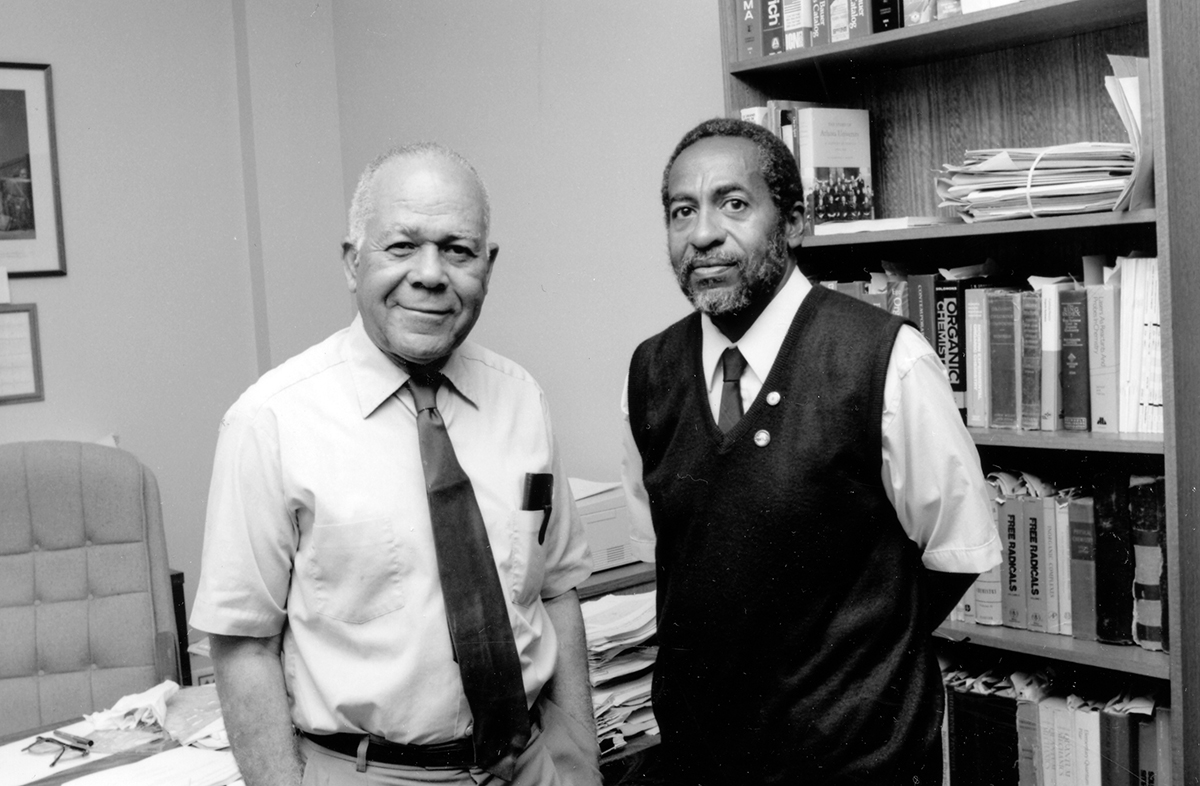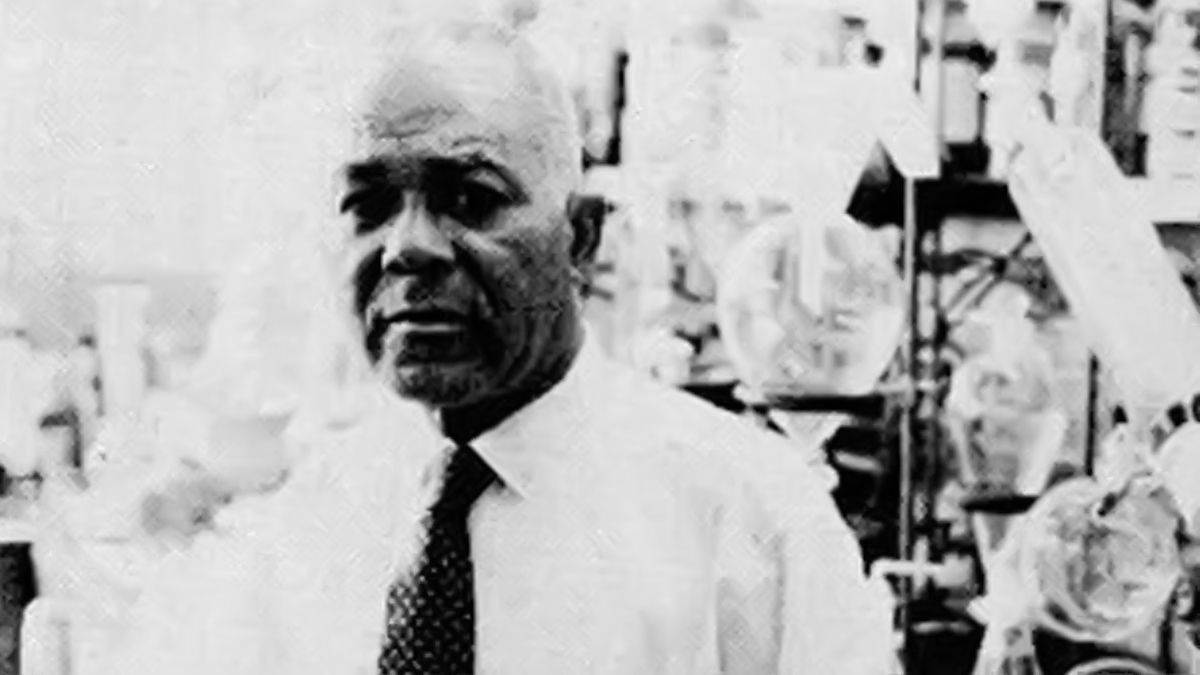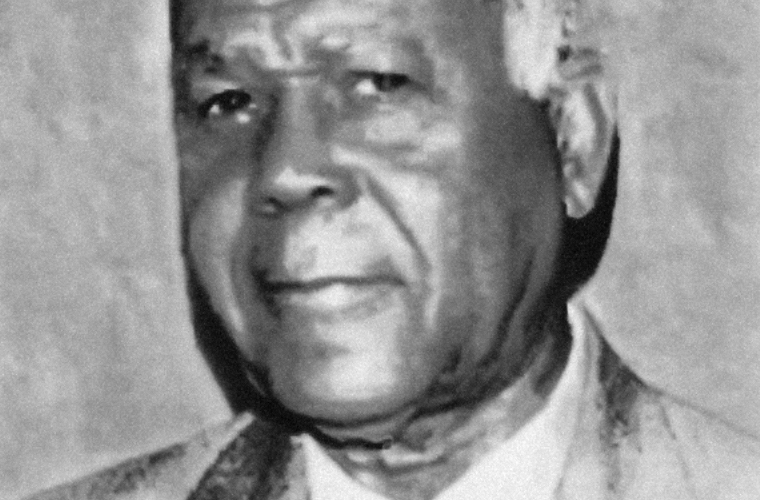Henry C. McBay was born in 1914 in Mexia, Texas, to Roberta Ransom and William Cecil McBay. His parents only had seventh-grade educations, but they had high expectations with regard to education for their children. Henry was the second of five children and all of them eventually received college degrees. His father began as a barber, and through self-study and the help of a local undertaker, he passed the Texas state examination for licensed embalmers. He then opened a funeral home with an older brother. The following year he started a drugstore with a younger brother.
The discovery of oil under the city of Mexia in the early decades of the twentieth century made the town wealthy enough to provide excellent high school education for African American students. In particular, the high school had outstanding teachers in the areas of science and mathematics, subjects in which Henry McBay excelled. Henry also took advantage of the well-coached football team and, as a quarterback, led the team to a championship in the school’s regional conference tournament.
After graduating from Paul Lawrence Dunbar High School at the age of sixteen, Henry entered Wiley College in Marshall, Texas. During his study at Wiley, he worked part-time, for the first two years in the dining hall, and for the last two years at the college post office. McBay had excellent teachers in the subjects that interested him most: science and mathematics. During many courses with these teachers, he became aware of organic chemistry and the possibilities associated with having a career in this area. He quickly realized that to do so required additional education.

After graduating from Wiley College in 1934, with the highest academic honors, McBay entered the graduate chemistry program at Atlanta University. There he worked under Kimuel A. Huggins on a research project concerned with creating new forms of plastics having properties similar to those of natural rubber. In 1936, McBay completed the requirements for the master’s degree; that same year Professor Huggins received his doctorate in organic chemistry from the University of Chicago.
During the next several years, McBay taught at Wiley College (1936–38); Western University (1938–39) in Quindaro, Kansas; and as a high school teacher in Huntsville, Alabama (1939–40). The primary reason for not continuing his graduate education was a lack of funds. Another restriction was that his parents expected his help in financing the college expenses of his younger brother and sister. However, in 1939, he enrolled at the University of Chicago as a summer student and took a course taught by the chairman of the chemistry department. McBay was one of the outstanding students in the course.
From 1941 to 1942, McBay was invited to work on a research team at the Carver Foundation of Tuskegee Institute, which was searching for a substitute material for the fiber obtained from jute, a plant native to India, but now in short supply because of the outbreak of World War II. The team focused on okra as a possible replacement. However, after a year of work, the idea was abandoned and McBay’s position there ended in 1942.

McBay wrote to the University of Chicago and requested admittance to the graduate program in chemistry as a full-time doctoral student. Although their response was noncommittal, he appeared on campus in September 1942 and was given the position of departmental assistant. This job was essentially reserved for racial minorities since it prevented blacks from having direct authority over white students. However, several advantages did accrue with the position: it carried a stipend, allowed experience to be obtained in various laboratory techniques, and provided a military draft deferment.
McBay began his doctoral research work in 1944 under Morris Kharasch. McBay had the necessary laboratory skills for handling dangerous chemical compounds. His selected research involved extremely volatile materials, and for this work, he was placed in a private laboratory. McBay’s outstanding work on this assignment earned him the Elizabeth Norton Prize for Excellence in Chemical Research in both 1944 and 1945. Based on this research, he was awarded a doctoral degree in chemistry from the University of Chicago in 1945.

